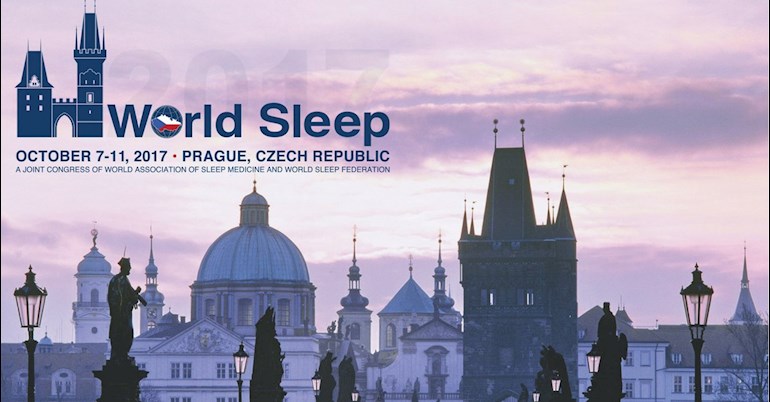The World Sleep Society exists to advance sleep health worldwide and it fulfils this by promoting and encouraging education, research and patient care throughout the world, acting as a bridge between different sleep societies and cultures, supporting and encouraging worldwide exchange of clinical information and scientific studies related to sleep medicine.
This year’s World Sleep Society congress in Prague was attended by over 2,600 sleep specialists, including some of the world’s leading RLS neurologists. It was extremely encouraging to see RLS feature so heavily on the congress programme, with almost ninety separate RLS sessions, thirty-one presentations and thirty-two oral abstractions. In fact, RLS appeared on the programme more than almost any other sleep disorder.
There has been a fundamental shift over the past few years and the previously much-maligned topic of RLS is now moving into the foreground.
I (Daragh Bogan, Chair of RLS-UK and President of the European Alliance for RLS - EARLS) was amazed by the amount of research being conducted into RLS, from colleges in the USA to sleep centres in Japan, medical schools in the Himalayas to population studies in the Peruvian Andes.
The next significant RLS conference is the EU RLS Study Group (EURLSSG) in December. The EURLSSG is a a non-profit association that brings together experts in the field of RLS who are actively involved in RLS research and dedicated to improving standards for diagnosis and treatment of RLS.
Among the agenda items are New findings on Periodic Leg Movements during Sleep; New Perspectives in RLS drug therapy; RLS Genetics; Epidemiology and Costs of RLS; and a range of topics regarding RLS in Children.
